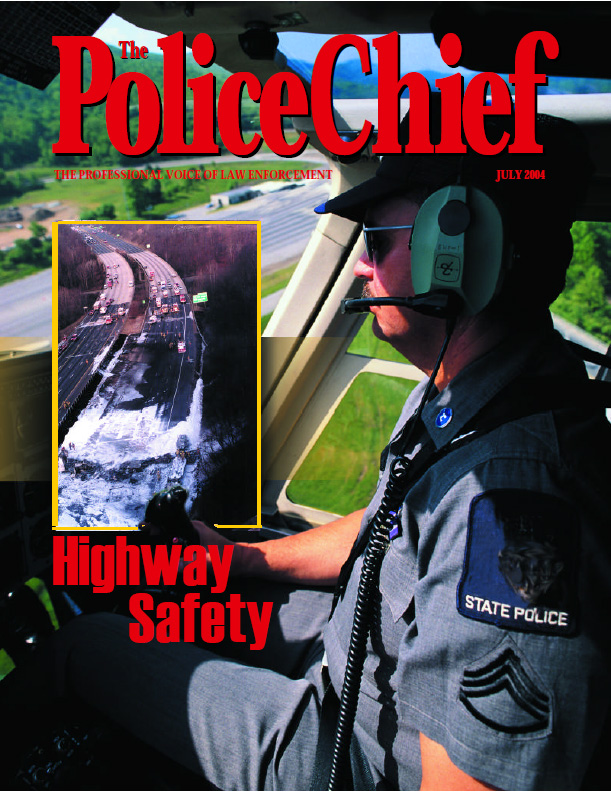
July 2004
During a busy travel season, law enforcement executives pay special attention to highway safety for motorists, officers, and others. They know that by enforcing speed limits and seat belt laws, stopping aggressive driving, and removing drunk drivers from behind the wheel, police make roadways safer for everyone.
Photo © 1998 Digital Stock Corporation. Inset photo courtesy Maryland Transportation Authority Police.
Articles
-
Does Your Agency's Equipment Pass the Test? Traffic Law Enforcement Technologies
One of the most important and visible components of a comprehensive traffic safety program is the officer actively engaged in traffic enforcement duties. For mo... -
Impaired Driving Incidents Expected with New Heroin Treatment
The Drug Addiction Treatment Act of 2000 expands the clinical context of medication-assisted opioid addiction treatment by allowing qualified physicians to dispense or prescribe specifically approved ... -
Interagency Communications During Major Events Possible
-
Managing Highway Incidents with NIMS
Two converging national forces promise to revolutionize the way highway incidents will be managed in many local jurisdictions in the coming years. The first of these forces is the nationwide adoption ... -
Police and Prosecutors Working Together: Abating Impaired Driving
The Miami-Dade County State Attorney's Office (SAO) in Miami, Florida, works closely with law enforcement officers and other partners to employ a multidisciplinary approach to abate impaired driving. ... -
Solutions for Safer Traffic Stops
Traffic stops are essential to effective traffic law enforcement. But stopping on or near the roadway is one of the most dangerous facets of police work.... -
The Posse Comitatus Act: What Does It Mean to Local Law Enforcement?
Twenty years ago the Posse Comitatus Act (PCA) was a standard topic of discussion only between civilian and military police and their legal advisors. Today the PCA inspires strong debate about nationa... -
Why Things Go Wrong in Police Work
Police executives face the consequences of mental and tactical mistakes made by police officers during difficult events. Accurate judgment and effective decision making by police officers under stress...
Columns
- President’s Message: IACP Support for the Consensus Plan
- Legislative Alert: Appropriations Process Begins; Funds Cut for First Responders
- From the Deputy Administrator: 2003 Traffic Safety Data
- Chief's Counsel: No Duty to Protect: Two Exceptions
- Advance & Applications: July 2004
- IACP News: July 2004
- Highway Safety Initiatives: July 2004
- Products and Services: July 2004
- Law Enforcement Jobs: July 2004
- Product Update: July 2004
- Survivors' Club: July 2004

